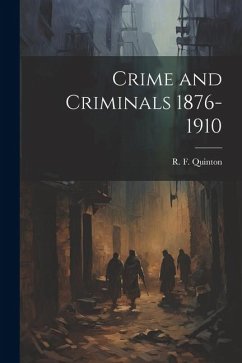
Modern French Prisons

PAYBACK Punkte
9 °P sammeln!
Delve into the dark annals of French crime history with Arthur Griffiths' "History and Romance of Crime, and Modern French Prisons." This meticulously researched work explores the lives and times of criminals in France, offering a captivating glimpse into the social and legal landscape of a bygone era. Griffiths, a noted authority on penology, provides a detailed account of French prisons and the treatment of offenders. Explore the evolution of crime and punishment, examining the historical context that shaped the lives of those who transgressed societal norms. A valuable resource for anyone i...
Delve into the dark annals of French crime history with Arthur Griffiths' "History and Romance of Crime, and Modern French Prisons." This meticulously researched work explores the lives and times of criminals in France, offering a captivating glimpse into the social and legal landscape of a bygone era. Griffiths, a noted authority on penology, provides a detailed account of French prisons and the treatment of offenders. Explore the evolution of crime and punishment, examining the historical context that shaped the lives of those who transgressed societal norms. A valuable resource for anyone interested in crime history, criminology, or the history of France, this book sheds light on the enduring fascination with the criminal underworld. Discover the narratives and realities behind the "romance of crime" as presented through a historical lens. A classic work, now available in a carefully prepared print edition. This work has been selected by scholars as being culturally important, and is part of the knowledge base of civilization as we know it. This work is in the public domain in the United States of America, and possibly other nations. Within the United States, you may freely copy and distribute this work, as no entity (individual or corporate) has a copyright on the body of the work. Scholars believe, and we concur, that this work is important enough to be preserved, reproduced, and made generally available to the public. We appreciate your support of the preservation process, and thank you for being an important part of keeping this knowledge alive and relevant.














